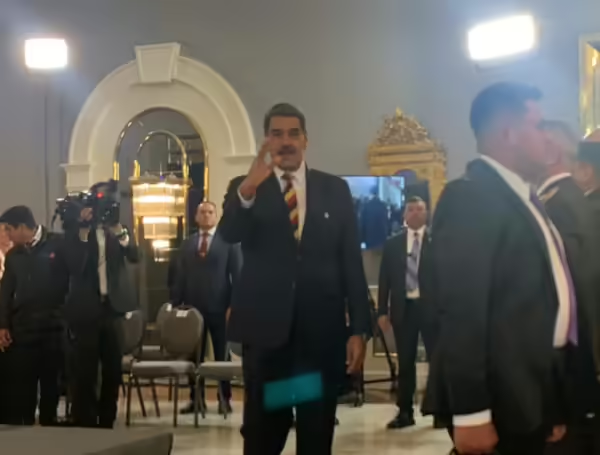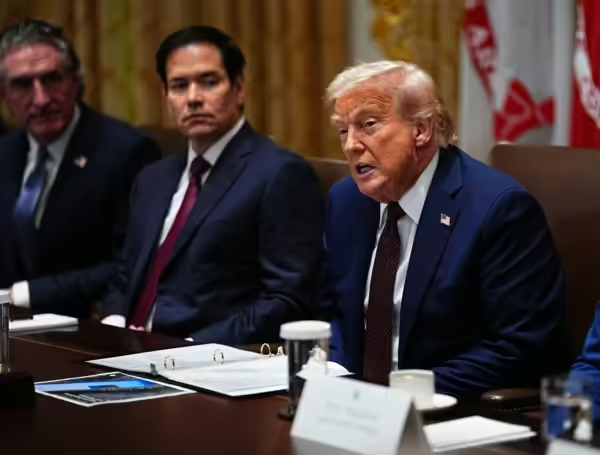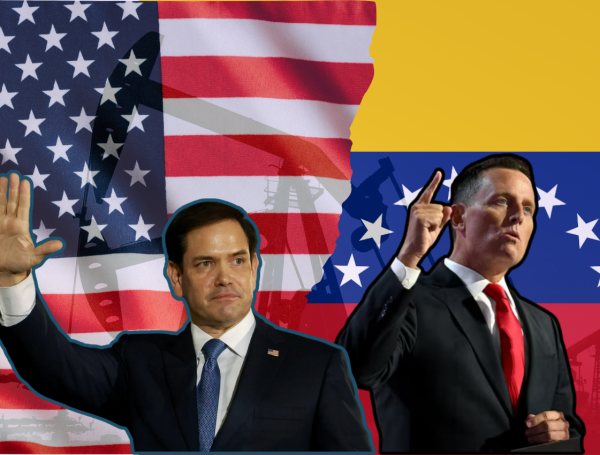Nicolás Maduro held an unprecedented press conference with foreign correspondents in Caracas, Venezuela, on Monday. With tensions with the United States and military deployment in the Caribbean as a backdrop, the Venezuelan leader described Washington's move as the"greatest threat the continent has seen in the last 100 years" and warned that any type of aggression will be met with a response.
“Eight ships with 1,200 missiles and a submarine are targeting Venezuela. It’s an extravagant threat. Unjustifiable, immoral, and bloody. Absolutely criminal. Venezuela is facing the greatest threat the continent has seen in the last 100 years,” Maduro said in front of a group of foreign media present in Caracas, including EL TIEMPO.
Regarding a possible conflict, Maduro said:"Under any circumstances, we will keep the country running. If Venezuela were attacked, it would immediately enter a period of armed struggle. We would constitutionally declare armed struggle."
To this end, he assured that the enlistment of Venezuelans in the ranks of the forces"will be continuous and permanent." He even announced that the training process will be announced this Tuesday, September 2, and spoke about the creation of a militia military unit.

Tensions between the Donald Trump administration and Maduro have been increasing in recent weeks after the United States deployed a military contingent in the southern Caribbean Sea.
Under the pretext of combating criminal cartels that traffic drugs through this route, Washington sent destroyer ships, a nuclear submarine and some 9,000 soldiers to the area.
However, this troop movement came with an increase in the reward to $50 million for the capture of the Chavista leader, in addition to designating that organization as a terrorist group.
"They're trying to demonize me. I don't have a regime and (...) we won't accept anyone applying their model to us," Maduro added at the press conference. He even mentioned that in 2019, when Juan Guaidó proclaimed himself interim president, he was told to leave the country or else they would invade it.
The Venezuelan leader also tacitly attributed these recent moves by the US administration in the Caribbean to various Republican sectors in Florida, which today play a key role in the Trump administration.
"We are witnessing how the Miami mafia has taken power in the White House and the State Department. They have 'Miami-ized' foreign policy," Maduro added, a reference that, between the lines, points to Marco Rubio, the head of US diplomacy.
Rubio, one of the Republican Party's most prominent figures, has been a fierce critic of Chavismo for years and accuses the Maduro regime of being"a criminal network."
In fact, regarding Rubio, Maduro said:"President Trump, Marco Rubio wants to stain you with blood. Marco Rubio, the warlord, led them in the wrong direction: into a dead end."

Maduro says he has had approaches with McNamara
After attacking the Secretary of State, Maduro acknowledged that he has had contact with other senior officials in the Republican administration.
One of them would beJohn McNamara, chargé d'affaires of the United States Embassy in Bogotá."We have coordinated with McNamara. When he spoke with me, he spoke with the president of the Republic," said Maduro.
He also added that there is another direct channel of communication with Washington through Richard Grenell, Trump's special envoy for Caracas, who was at the Miraflores Palace a few weeks ago.
Despite renewed tensions between Washington and Caracas, the two governments have held several negotiations. The most recent took place in July, when the two countries exchanged a number of prisoners.

The Republican administration deported several migrants who remained undocumented on U.S. soil to Venezuela. The deal also included the deportation of several Venezuelans who remained in El Salvador's mega-prison.
For his part, Maduro announced the release of a group of opposition political prisoners.
Nicolás Maduro's mention of Gustavo Petro during the press conference
At the press conference, Maduro also addressed Colombia and the government of Gustavo Petro. Regarding the fight against the violence plaguing both sides of the border, the Chavista leader said,"We have guaranteed the cleanliness of Venezuelan territory."
He also said that President Petro “has made decisions in that direction.
"We hope to reach a joint plan. We want the border to be a zone of peace. That's what the binational peace zone is for," Maduro said, referring to the creation of the zone, established by representatives of both governments in July of this year.

